Inclusive Environment
INITIATIVES FOR INCLUSIVE ENVIRONMENT
The college has always strived to provide an inclusive environment and promote tolerance and social harmony amongst the students and staff members who come from diverse backgrounds. We have students and staff from different socioeconomic, linguistic, regional, communal and cultural backgrounds in our college. The college has always promoted values of tolerance and harmony amongst them and encourages activities that help to cultivate the feeling of togetherness. We conduct various activities under the auspicious of Departmental Associations, various clubs, College Union, PTA, College Alumni Association, NCC, NSS, EBSB club etc. with an intention of nurturing the culture of inclusiveness among various stakeholders of the College. A brief illustration of some of the important activities conducted in the College with a view to spread the message of integrity and inclusiveness are discussed below:
ONAM CELEBRATIONS
ONAM CELEBRATIONS Onam is an annual Hindu holiday and festival celebrated in Kerala. It is also a harvest festival, and falls on the 22nd nakshatra Thiruvonam in the Malayalam calendar month of Chingam, which in Gregorian calendar overlaps with August–September. According to legends, the festival is celebrated to commemorate King Mahabali, whose spirit is said to visit Kerala at the time of Onam. Onam is a major annual event for Malayali people in and outside Kerala. It is a harvest festival, one of three major annual Hindu celebrations along with Vishu and Thiruvathira, and it is observed with numerous festivities. Onam celebrations include Vallam Kali (boat races), Pulikali (tiger dances), Pookkalam (flower Rangoli), Onathappan (worship), Onam Kali, Tug of War, ThumbiThullal (women's dance), Kummattikali (mask dance), Onathallu (martial arts), Onavillu (music), Kazhchakkula (plantain offerings), Onapottan (costumes), Atthachamayam (folk songs and dance), and other celebrations. It is the New Year day for Malayali. Onam is the official state festival of Kerala with public holidays that start four days from Uthradom (Onam eve). It is also celebrated by Malayali diaspora around the world. Though a Hindu festival, non-Hindu communities of Kerala participate in Onam celebrations considering it as a cultural festival.
The harvest festival of Onam is celebrated annually in the college with this as an objective. Onam is celebrated with joy and enthusiasm by people from all communities in Kerala. As part of the celebrations the students and staff members participate in various games such as ‘sundarikupottuthodal’, tug of war, ‘uriadi’, musical chairs, etc. Traditional dances forms, folk music and art forms from the various regions of Kerala such as ‘Keralanadanam’, ‘vanchipattu’, ‘pullikali’ and the like are performed. Onam Sandhya (feast) is also organised by various departments of the college wherein all the students and teachers banquet together. This harvest festival of Kerala brings together people from diverse communities and propagates the divine message of unity in diversity.
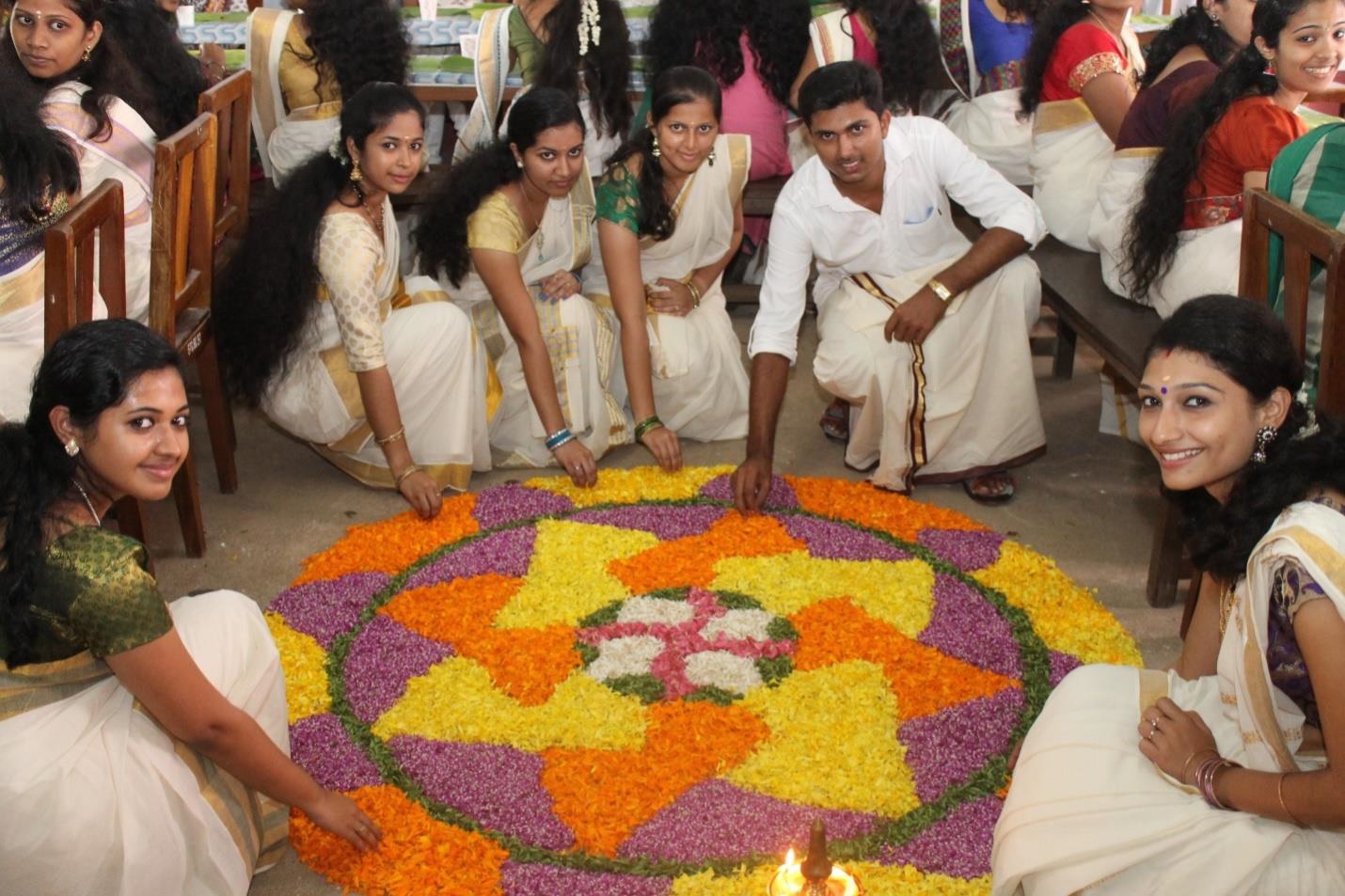 Athapookkalam in connection with Onam celebrations
Athapookkalam in connection with Onam celebrations
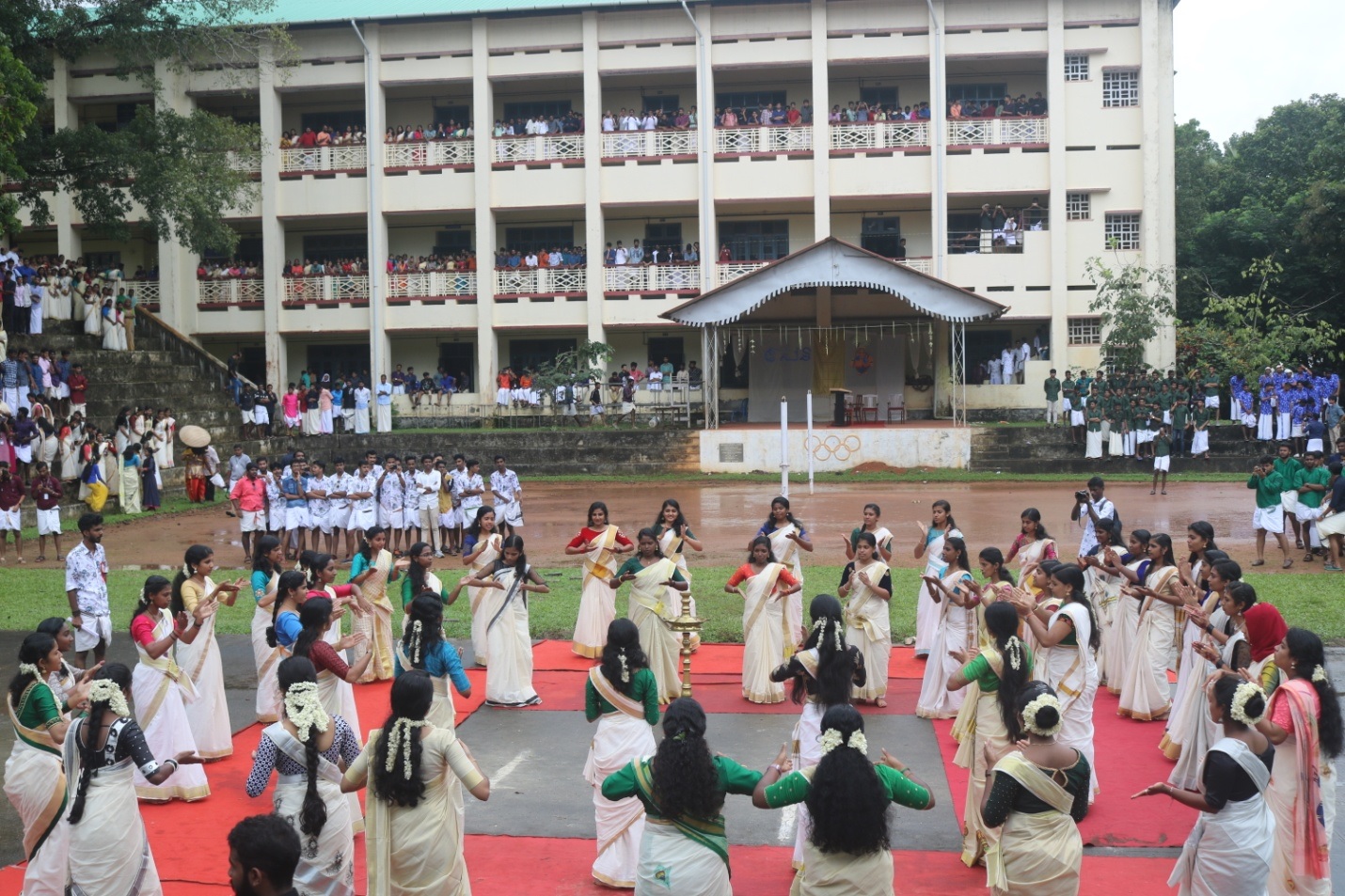 Mega Thiruvathirakali in association with Onam celebtration
Mega Thiruvathirakali in association with Onam celebtration
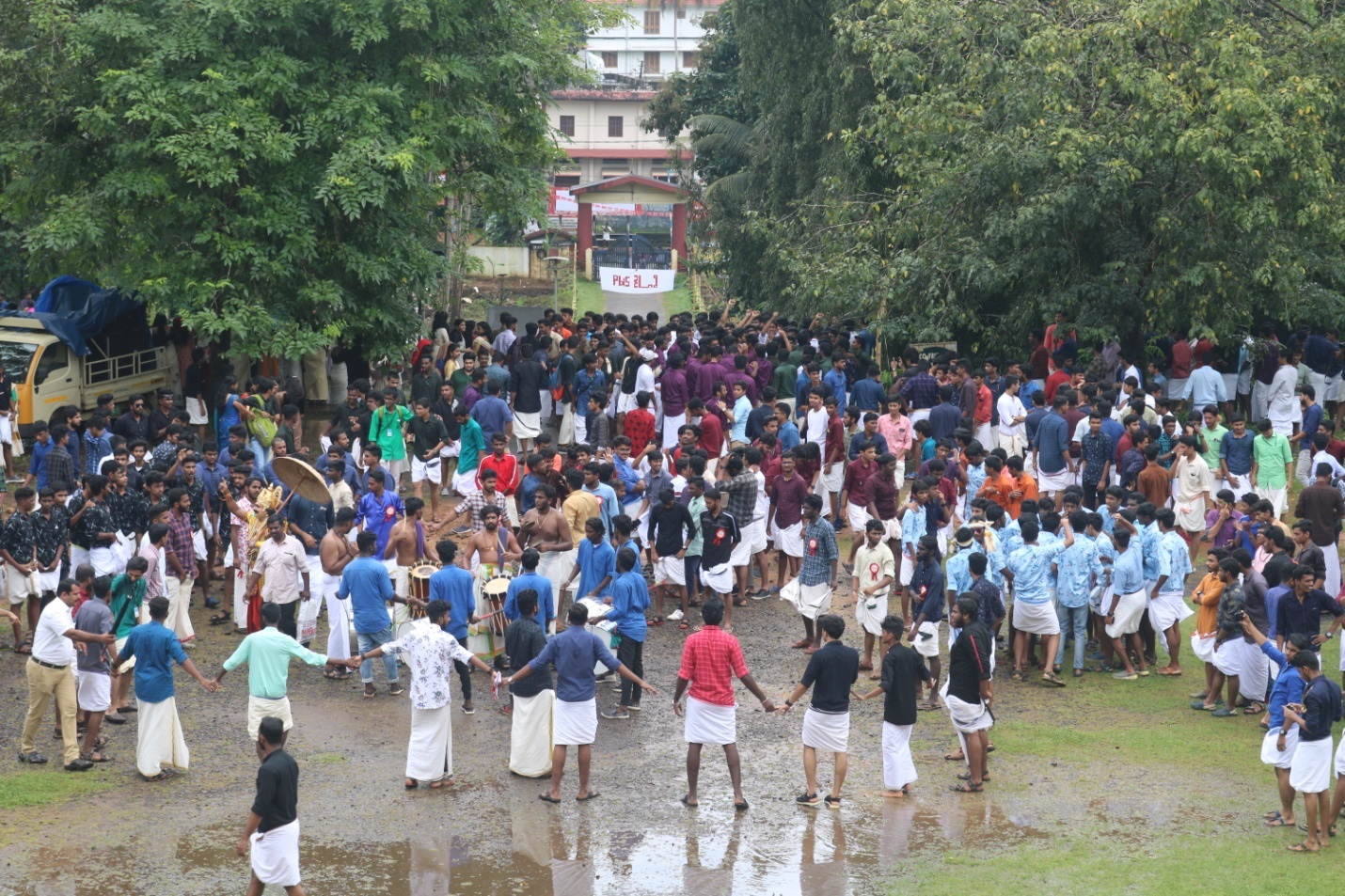 One view from the Onam celebrations
One view from the Onam celebrations
KERALA PIRAVI (November 01)
‘Keralapiravi’ is celebrated annually on 1st September every year since 1956. Prior to 1956, Kerala had been divided into three regions: Malabar, Cochin and Travancore. Malabar comprises the northern coastal region around Cannanore and Calicut. This region had been ruled by the Zamorin of Calicut before being conquered by Tipu Sultan. It was then ceded to the British East India Company after the Anglo-Mysore Wars, and annexed to the British Madras Presidency. The central region comprised the erstwhile Kingdom of Cochin, administered from Thrissur. The southernmost province was the Kingdom of Travancore, based in the city of Thiruvananthapuram. While Cochin had been a vassal state under the British Raj, Travancore Kingdom was administered under suzerainty.
Early in the 20th century, the Mappila Muslims of the Calicut region revolted against the Hindu Zamindars and the British Raj. In the following years, agitations for political rights and a popular government took place in Travancore and Cochin as well. After India was partitioned in 1947 into India and Pakistan, Travancore and Cochin, part of India were merged on 1 July 1949 to form Travancore-Cochin. A popular movement known as Aikya Kerala (United Kerala), for the formation of the State of Kerala, gave an impetus to the reorganisation of the state on a linguistic basis.
On 1 November 1956, the taluk of Kasargod in the South Kanara district of Madras, the Malabar district of Madras, and Travancore-Cochin, without four southern taluks (which joined Tamil Nadu), merged to form the state of Kerala under the States Reorganisation Act. This is the historic background of the Fesival ‘Keralapiravi’.
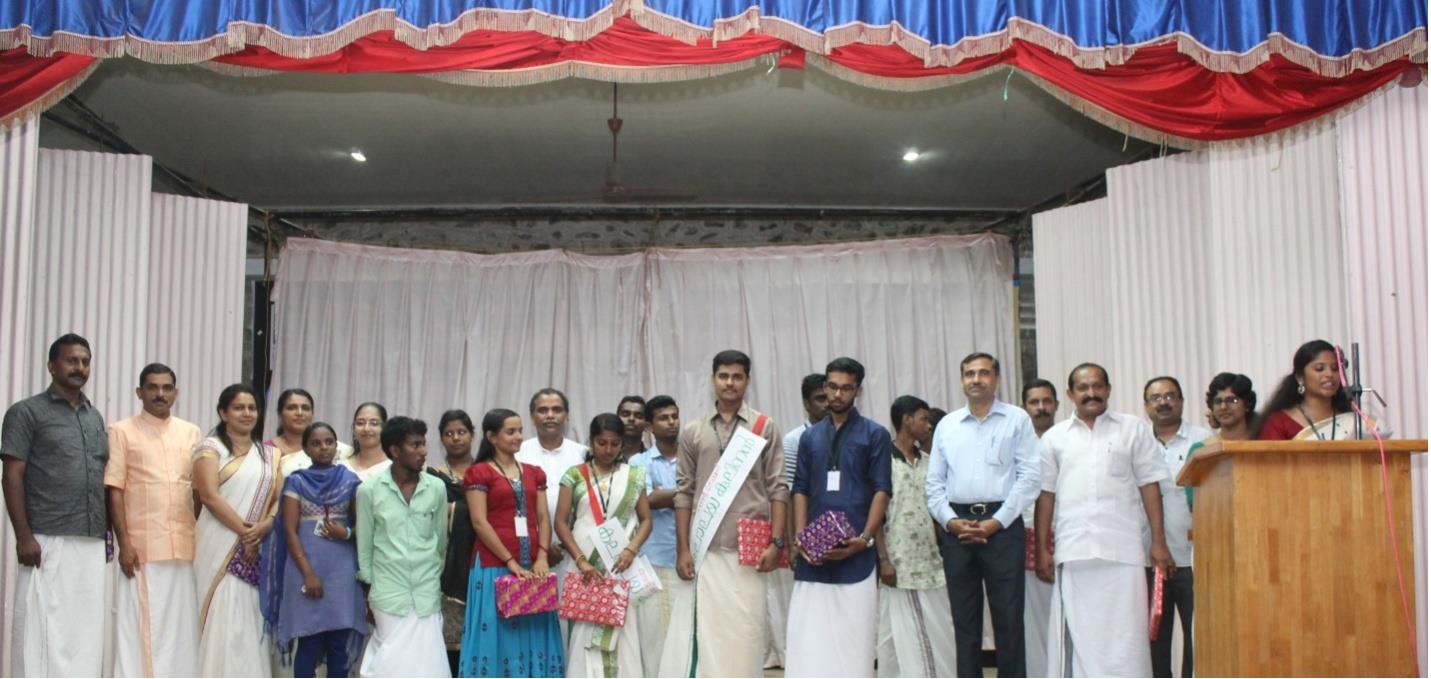 Mr and Mrs St. Thomas competition in connection with Keralapiravi celebrations
Mr and Mrs St. Thomas competition in connection with Keralapiravi celebrations
CHRISTMAS
Christmas is also celebrated annually in the college probably on the last working day before closing the College for Christmas vacation. All the staff and students irrespective of their religion, caste, and community participate wholeheartedly in this festivity and they are able to socialize and get to know each other better. Cake cutting, exchange of gifts, concerts, cultural programmes etc. are specialty of Christmas celebrations. These interactions help students and staff members to form lasting relationships with people from diverse backgrounds and imbibe the value of tolerance and harmony.
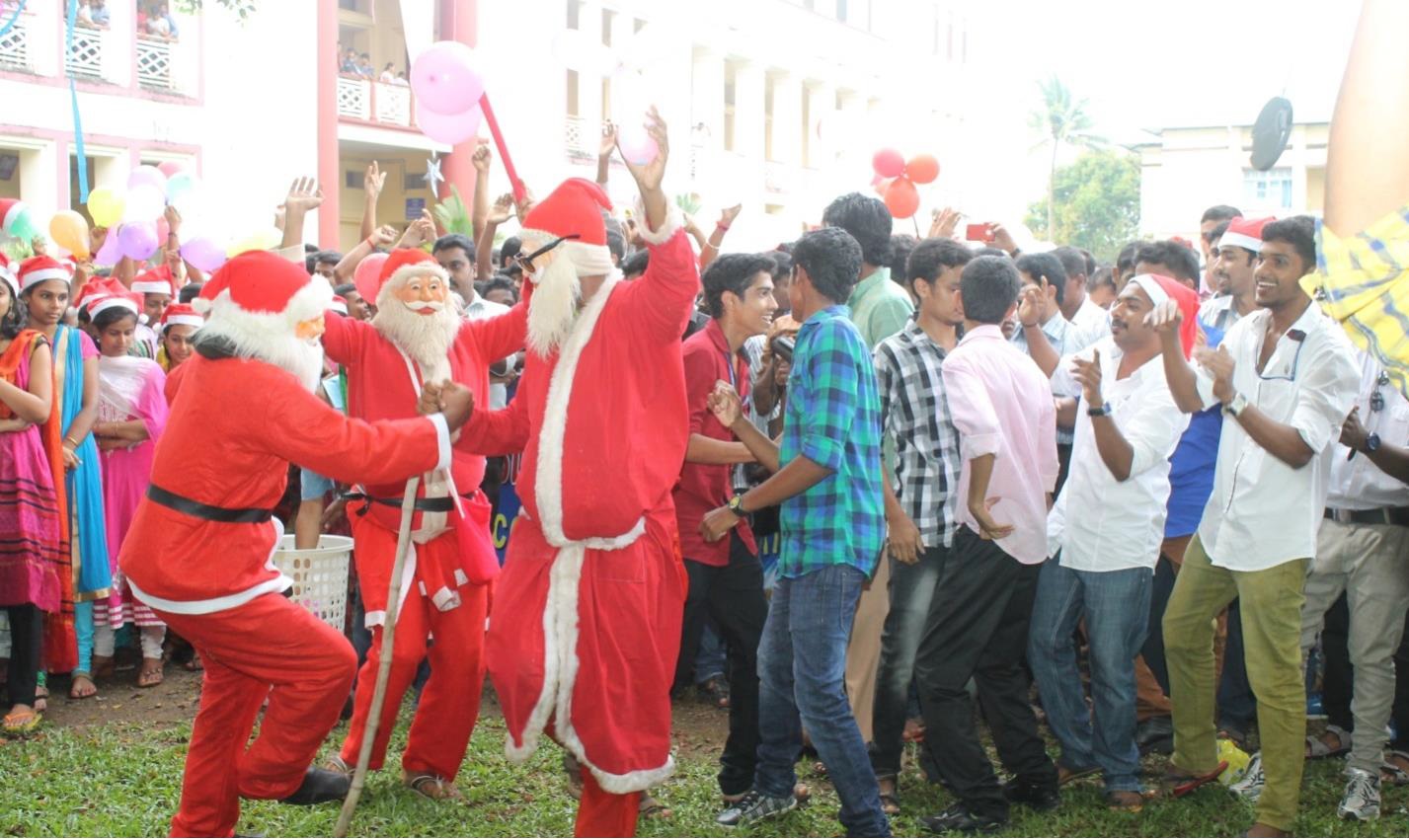 Christmas carol service in connection with Christmas celebration
Christmas carol service in connection with Christmas celebration
COLLEGE YOUTH FESTIVAL
The College, under the auspicious of the College Union organizes a week long Arts and Cultural festival every year. Various competitions, including music, drama, mime, dance, folklores, writing competitions, elocution, essay and debate competitions etc. are conducted. Students are encouraged to present their items preferably based on national integration, communal harmony, social inclusiveness etc. The recently constituted EBSB club is also taking initiatives in these activities. The Arts club of the college under the supervision of a Teacher Coordinator take the initiative and control of all the programmes.
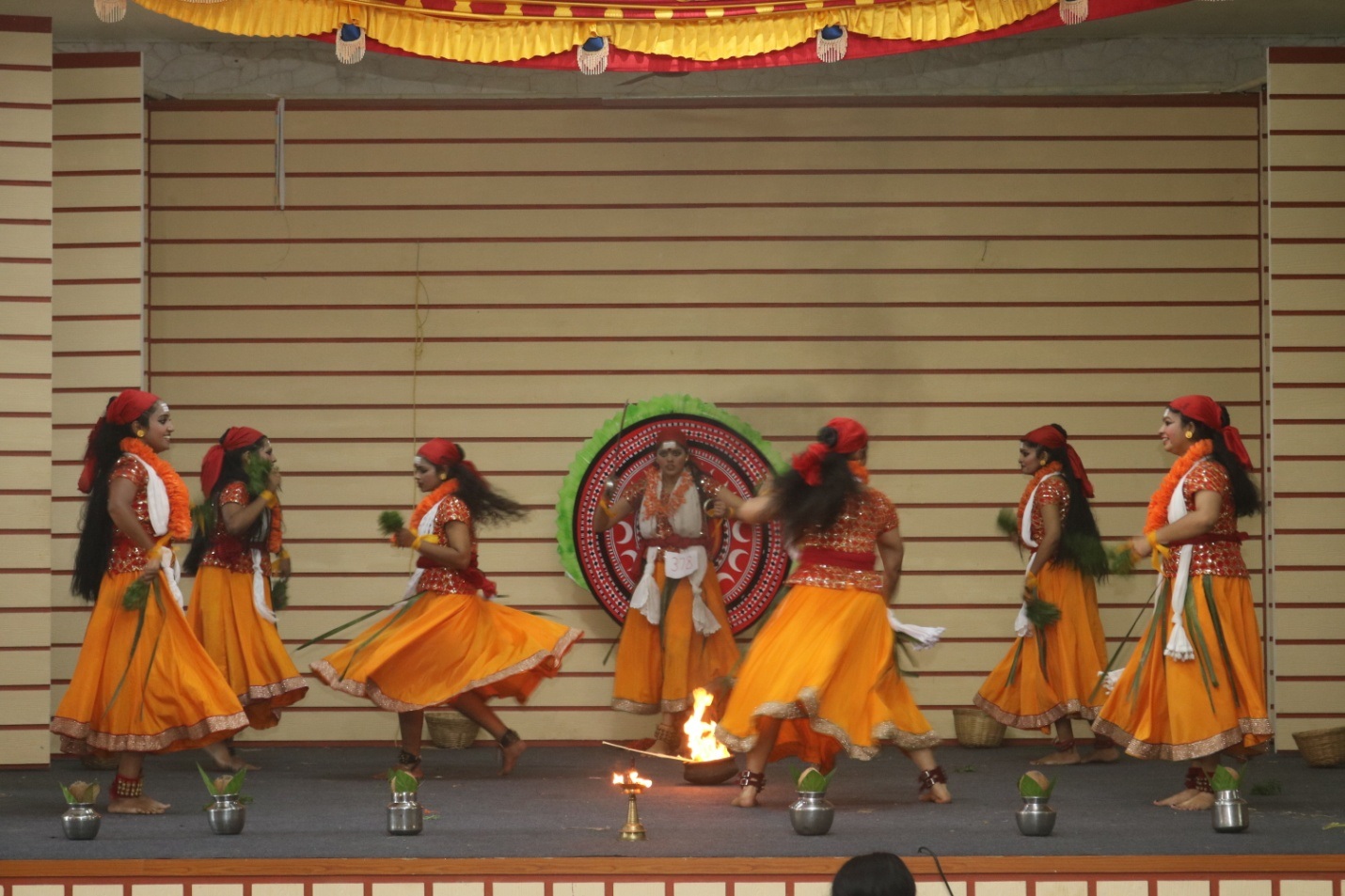 Folkdance competitions in connection with college youth festival
Folkdance competitions in connection with college youth festival
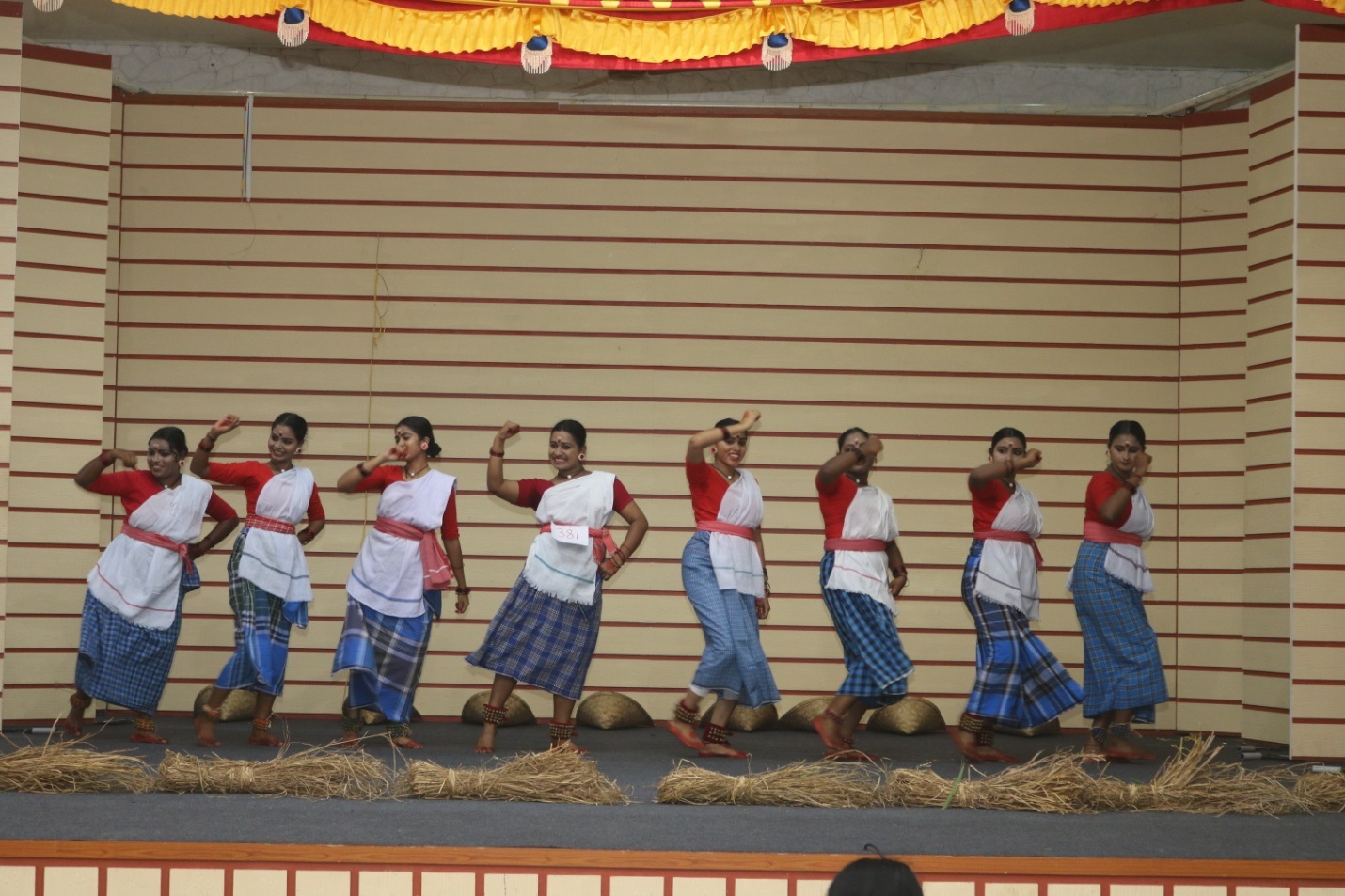 Folkdance competitions in connection with college youth festival
Folkdance competitions in connection with college youth festival
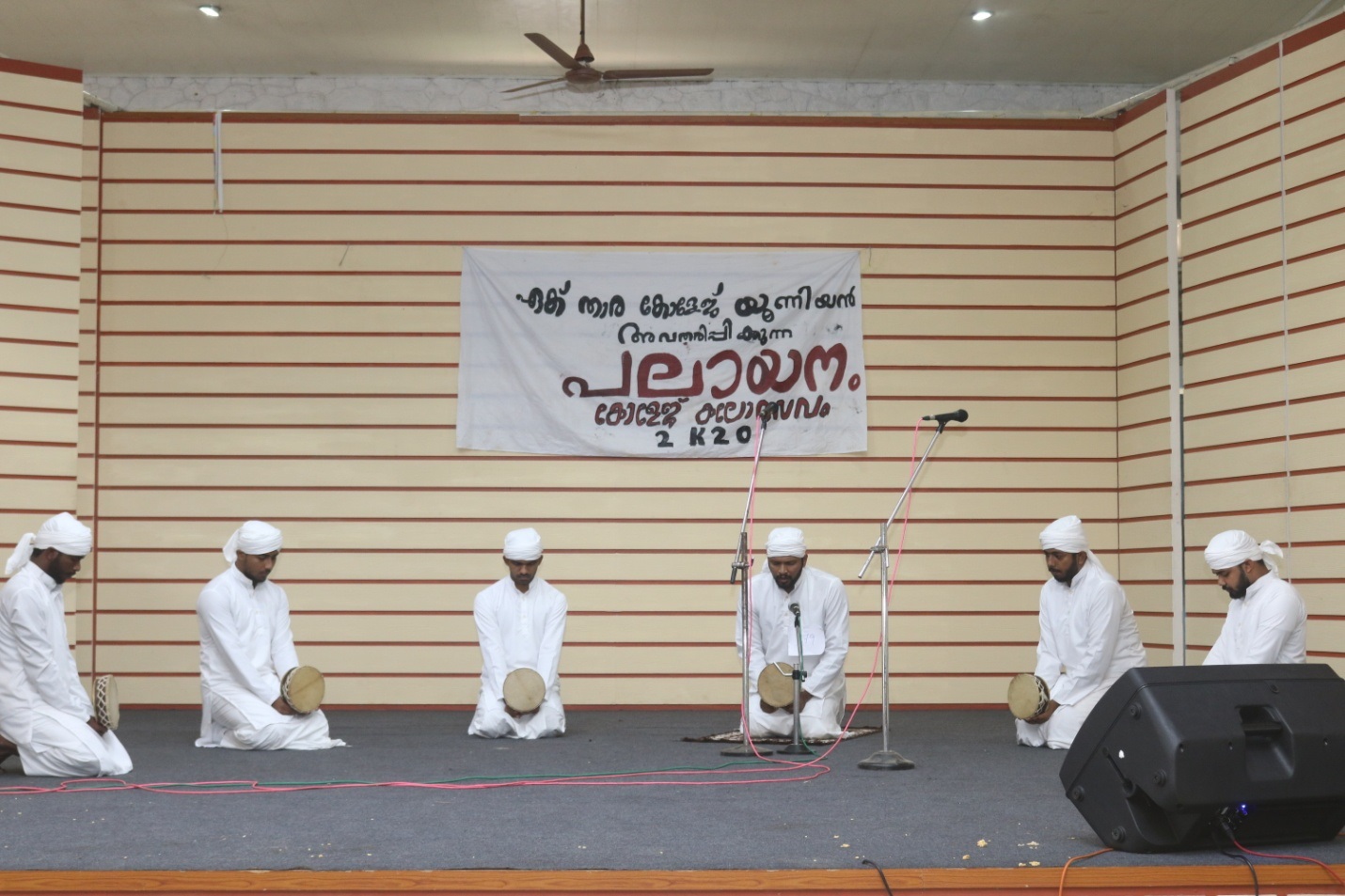 Duffmutt competition in connection with college youth festival
Duffmutt competition in connection with college youth festivalThe college also provides students from diverse backgrounds opportunities to exhibit and share their cultural heritage during the college Arts day celebrations. Competitions are conducted for various art forms traditionally performed by members of various cultures. Art forms like‘Oppana’, ‘Kolkali’, ‘Duffmuttu’ are associated with Muslim culture. ‘Oppana’and‘Kolkali’ are traditionally performed during Muslim weddings.‘Duffmuttu’ is performed as social entertainment and to commemorate festivals connected with mosques and weddings. Similarly ‘Thiruvathira’ ‘Bharatnatyam’ and other classical dances are associated with Hindu temple festivals. ‘Margamkali’ is an art form traditionally performed by Syrian Christians. Despite the cultural associations of these art forms to particular religious communities, students from all communities participate in them. This allows them to interact with and know about diverse cultures and imbibe values of tolerance and harmony. In this manner they build strong bonds that traverse cultural boundaries and this enables them to treat everyone equallyirrespective of their diverse backgrounds.
